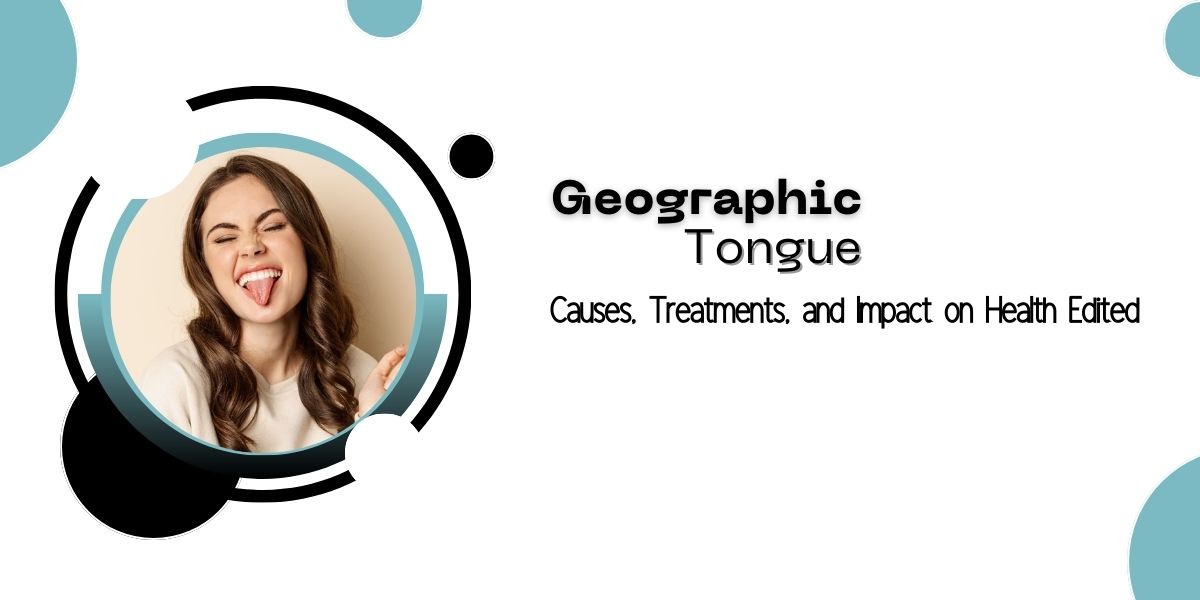Geographic tongue, also known as benign migratory glossitis, is a common condition marked by map-like, red inflamed patches that occur on the surface of the tongue. The lesions give the tongue the characteristic appearance of a map or geographical landscape, leading to its unique name. While it can cause temporary discomfort, geographic tongue itself poses no threat to one’s health or quality of life. The areas of inflammation tend to shift locations, come and go, and resolve without intervention over time.
Prevalence and Presentation
It is estimated that 1-3% of people have geographic tongue at any given time. While the condition can develop at any age, geographic tongue more commonly appears in adults between the ages of 20 to 40 years old. It affects women more frequently than men. In children, the prevalence rate may be as high as 15% before naturally resolving around puberty.
The hallmark symptom of geographic tongue is irregular red patches on the top and sides of the tongue, often with a distinct white border. These lesions represent inflamed areas where the small nodules or papillae on the tongue are missing or atrophied. The size, shape, color and location of patches can vary significantly among those with geographic tongue:
- Size: Lesions range from less than 1 centimeter to covering almost the entire tongue surface area
- Shape: Patches may appear round, oval, or have irregular jagged edges
- Color: Red denotes inflamed areas but patches may also present yellowish-white
- Location Shifting: Old areas remit as new lesions seem to migrate across the tongue
The reason behind this movement or waxing and waning nature of the patches helps explain the “benign migratory glossitis” aspect of its clinical name.
Causes and Risk Factors
While the exact cause behind geographic tongue is unknown, there does seem to be contributing genetic and environmental factors at play. Risk factors include:
Genetic Predisposition
Geographic tongue tends to cluster within families, implying a potential genetic component. The gene HLA-Cw*06 in particular has been associated with an increased geographic tongue risk.
Allergies and Asthma
Individuals with geographic tongue also have higher rates of conditions like asthma and eczema. Allergies may play a key role in lesion development and inflammation.
Stress and Anxiety
There are noted links between heightened stress levels and recurrences of geographic tongue. Stress can possibly activate or exacerbate the condition.
Minor Irritation or Trauma
Physical insults to the tongue — like abrasive foods, bite trauma, oral surgery, or even vigorous teeth brushing — may also help trigger geographic tongue outbreaks.
Tobacco Use
Smoking is considered a potential risk factor as tobacco may contribute to irritation. Geographic tongue is generally more common among smokers.
While the above factors can all make someone more prone to geographic tongue or lesions flares, often the condition arises from some combination of influences rather than one discrete cause. Researchers continue to study what underlies this oral condition.
Treatments and Relief Options
As geographic tongue tends to be self-limiting and not harmful, most cases require little to no intervention. There are no standardized treatments but options for minimizing discomfort during flares include:
Avoiding Tongue Irritants
Staying away from foods and products that seem to aggravate lesions can help prevent recurrences or enable faster healing. Common irritants are often acidic, abrasive, salty or spicy substances like citrus, chips, tomatoes, coffee, tobacco, toothpaste with SLS, and alcohol.
Practicing Good Oral Care
Gentle brushing plus regular cleanings and exams by a dentist can help promote healing by minimizing bacterial buildup and inflammation. A very soft or extra-soft bristle toothbrush is recommended
Using Anti-Inflammatory Products
Non-prescription steroid oral gels or antihistamine creams can temporarily relieve soreness or sensitivity during active flares. They help tone down localized immune and inflammatory responses.
Controlling Stress Levels
As stress activation seems tied to recurrences, it’s beneficial to actively manage life pressures and practice healthy coping techniques whenever feasible.
In more stubborn instances of persistent, painful geographic tongue, further options include:
- Prescribed medications to reduce tissue inflammation like topical corticosteroids or immune-modulating agents
- Vitamin B supplements to potentially promote healing
- Anesthetic rinses for temporary pain relief
Again, most of the time lesions will clear up on their own without needing dedicated treatment. It’s mainly a matter of controlling symptoms until remission occurs.
Health Impact and Outlook
Beyond periodic annoyances with eating or oral sensitivity when lesions are present, geographic tongue does not threaten one’s health or quality of life long-term. There are also no oral cancer risks associated with this common condition. It remains unclear what exactly causes geographic tongue outbreaks to appear and migrate repeatedly on the tongue surface. Areas will typically heal within 10-14 days but the condition itself follows an unpredictable course of latent periods and intermittent flare-ups over months or even years.
How Much Does Invisalign Cost in the UK? Everything You Need to Know
In children with geographic tongue, the condition often naturally wanes around puberty. But occasionally it persists lifelong with episodes continuing into older adulthood, even if there may be prolonged asymptomatic intervals. There is no “cure” to eliminate geographic tongue entirely once genetically prone to it. Some patients learn to better manage potential triggers to minimize recurrences. Any tongue pain or sensitivity issues tend to be temporary and localized while lesions are active. Practicing good oral care along with avoiding irritants can promote healing during these periods.
Anyone noticing potential geographic tongue symptoms —
In particular any lesions persisting longer than 2 weeks — should consult their physician or dentist to rule out other conditions with similar appearances. But in most cases, geographic tongue is simply diagnosed by visual recognition and causes no reason for concern. It may recur but the condition follows a benign course that doesn’t escalate or impact one’s health. At worst during flares, geographic tongue can cause minor oral annoyances. So while frustrating, this common condition remains innocuous with no long-term risks. Call our Smile Clinic London dentists for geographic tongue London in London today!







